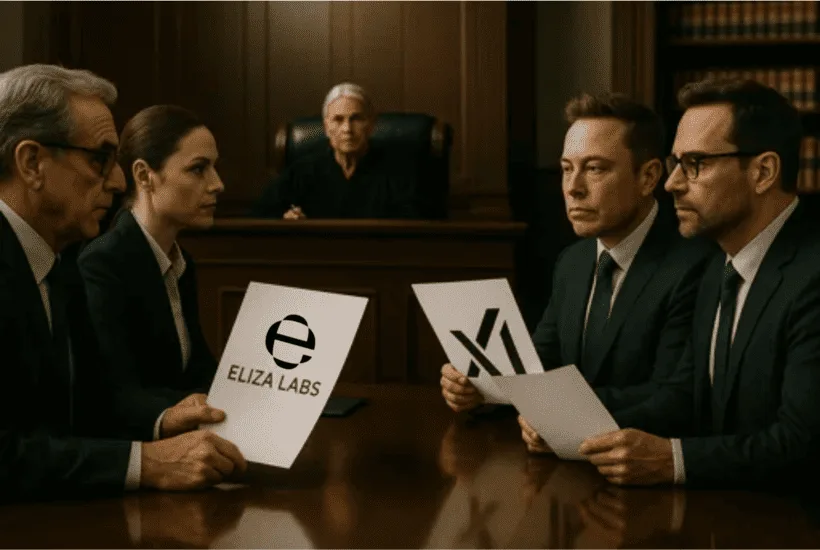- Eliza Labs accuses xAI of monopolistic practices and attempted deplatforming.
- Dispute centers on licensing fees, with xAI demanding $50,000 per month for API access.
- Legal battles are increasing in the AI sector over IP, licensing, and monopoly concerns.
Agentic AI startup Eliza Labs has filed a lawsuit against Elon Musk’s AI company xAI, accusing the tech giant of monopolistic behavior intended to “deplatform” agentic AI launchpads.
According to the lawsuit, xAI attempted to extract valuable technical information, including documentation and usage data, from Eliza Labs’ platform with the goal of replicating its ideas before allegedly trying to push Eliza Labs out of xAI’s ecosystem.
Licensing fees spark dispute
Eliza Labs co-founder Shaw Walters claims the relationship between the two companies began amicably, with xAI inviting Walters to share ideas. Eliza Labs had also built its platform using xAI’s free application programming interface (API).
However, the tone reportedly shifted when xAI launched Ani and a new version of Grok, suddenly demanding $50,000 per month for an enterprise license—an annual cost of $600,000—or threatening legal action.
Walters stated, “We were already paying them over $20,000 annually through various licenses and fees,” highlighting a dramatic increase in costs that Eliza Labs considers unfair and potentially anti-competitive.
AI sector faces mounting legal challenges
The lawsuit reflects the litigious nature of the AI industry, where questions around monopolistic practices, intellectual property rights, and corporate liability remain largely unresolved.
The AI sector is still in its regulatory infancy, creating grey areas alongside traditional tech legal risks, including trademark and patent disputes.
Recent examples of litigation in the AI field include:
- February 2024: Elon Musk sued OpenAI and Sam Altman over OpenAI’s transition to a for-profit enterprise, though the case was withdrawn in June without prejudice.
- July 2024: The New York Times sued OpenAI over ChatGPT’s use of copyrighted material, seeking detailed source disclosure.
- August 2025: Ethereum-focused gaming company Xai filed a trademark infringement lawsuit against xAI, claiming consumer confusion and business harm.
Implications for agentic AI
Eliza Labs’ lawsuit highlights growing tensions between AI startups and dominant tech companies, particularly in the field of agentic AI, where platforms operate autonomously to perform tasks.
If Eliza Labs’ claims succeed, the case could reshape licensing norms for AI APIs and potentially limit the ability of larger AI firms to exert monopolistic influence over emerging startups.













